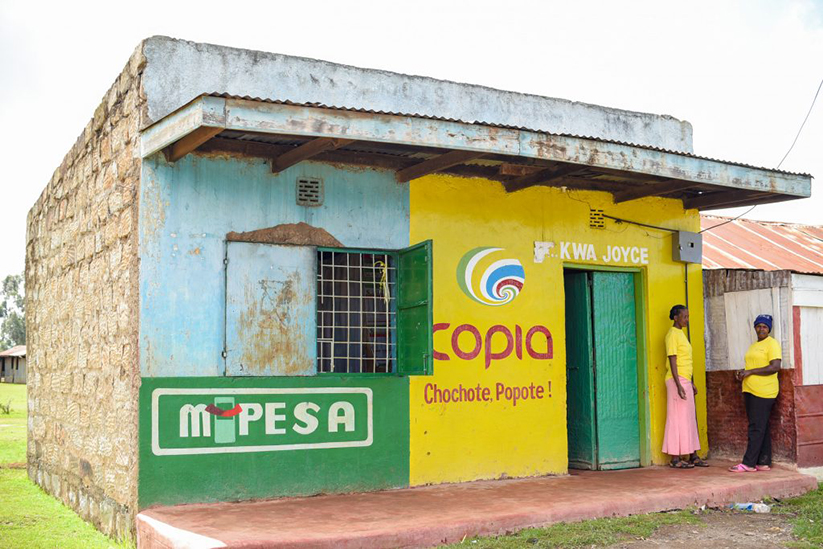Jumia and Copia are two popular e-commerce platforms in Kenya. Both of them offer a wide range of products, from electronics to groceries, and deliver them to your doorstep or a nearby pickup point. While both platforms offer a wide range of products, there are some differences between them.
So how do they compare in terms of prices, delivery options, customer service, and product quality? And which one should you use for your online shopping needs? In this blog post, we will compare Jumia and Copia on these aspects and help you make an informed decision.
Related:
- Jumia Food Shutting Down: Here Are Some Alternatives
- Jumia Kenya Black Friday 2023: Best Tech Deals You Can Grab
But first, let’s learn about these two. First up is Copia. Copia is a business-to-customer (B2C) e-commerce platform that provides access to a previously underserved market of middle to low-income Africans. Similarly, Jumia is a leading e-commerce platform that offers a wide range of products from various categories, such as electronics, fashion, home and office, and more.
Jumia is active across 11 countries in Africa, including Nigeria, Kenya, and Uganda. It is a digital marketplace that connects thousands of sellers to millions of consumers, with integrated logistics and digital payment services
Choosing between Jumia and Copia depends on your specific needs and preferences in Kenya. Here’s a breakdown of their key differences:
Product Range and Pricing
One of the main factors that influence online shopping is the price of the products. Jumia and Copia both claim to offer competitive prices and discounts on their products, but which one is cheaper? To answer this question, we compared the prices of some common items on both platforms, such as a Samsung Galaxy A12 smartphone, a 32-inch Hisense TV, a 5kg packet of maize flour, and a 500ml bottle of Coca-Cola. Here are the results:
| Item | Jumia Price (KES) | Copia Price (KES) |
|---|---|---|
| iTel A60 | 10,500 | 14,000 |
| Hisense 32-inch TV | 17,599 | 23,346 |
| Maize flour (2kg) | 234 | 150 |
| Coca-Cola (500ml) | 60 | 55 |
As you can see, the prices are quite similar on both platforms, with Jumia being slightly cheaper for electronics and Copia being slightly cheaper for groceries.
However, these prices may vary depending on the availability of the products, the location of the seller, and the time of the purchase. Therefore, it is advisable to compare the prices of the products you want to buy on both platforms before placing your order.
In summary;
- Jumia: Offers a wider variety of items, including electronics, appliances, fashion, beauty, and home goods. Prices tend to be higher, catering to a broader range of incomes.
- Copia: Focuses on everyday essentials like groceries, pharmaceuticals, and construction materials. Prices are generally lower, appealing to budget-conscious shoppers.
Ordering and Delivery
Another important factor that affects online shopping is the delivery options available. Jumia and Copia both offer delivery services to their customers, but they differ in terms of speed, cost, and convenience. Here are some of the main differences:
- Jumia delivers to all parts of Kenya, while Copia only delivers to rural areas and peri-urban areas.
- Jumia offers two delivery options: standard delivery and express delivery. Standard delivery takes 2-8 days depending on your location and costs between KES 100 and KES 400. Express delivery takes 1-3 days and costs between KES 200 and KES 600. Copia only offers one delivery option: standard delivery. It takes 2-4 days and costs between KES 50 and KES 150.
- Jumia allows you to choose your preferred delivery address or pickup point from a list of options. You can also track your order status online or via SMS. Copia requires you to select a nearby pickup point from their network of agents. You can also track your order status via SMS or by calling their customer care number.
- Jumia accepts cash on delivery, mobile money, credit/debit cards, and bank transfers as payment methods. Copia only accepts mobile money as payment method.
- Jumia: Orders can be placed individually or in bulk. Delivery timelines vary based on location and product availability. They typically charge delivery fees, though free options may be available depending on promotions.
- Copia: Encourages bulk ordering for groups or communities. Delivery is often within 24-48 hours and usually free, thanks to streamlined logistics and direct sourcing from suppliers.
Customer Focus:
- Jumia: Targets urban, middle-income and higher demographics. User interface may be more complex.
- Copia: Prioritizes underserved, middle-to-low-income populations in rural and peri-urban areas. User interface is designed for simplicity and accessibility.
Product Quality
Product quality is another vital factor that determines online shopping satisfaction. Jumia and Copia both source their products from various sellers and suppliers, but they differ in terms of quality assurance and verification. Here are some of the main differences:
- Jumia has a quality control team that inspects and verifies the products before they are listed on their platform. They also have a rating and review system that allows customers to rate and review the products and sellers they buy from. This helps other customers to make informed decisions and avoid low-quality products or sellers. Copia does not have a quality control team or a rating and review system. They rely on their suppliers and agents to ensure the quality of the products they sell.
- Jumia has a Jumia Mall section on their platform that features products from official brand stores and authorized distributors. These products are guaranteed to be original, new, and high-quality. They also come with a 15-day return policy and a manufacturer’s warranty. Copia does not have a similar section on their platform. They sell products from various sources, some of which may be counterfeit, used, or low-quality.
Jumia has a return policy that allows you to return any product within 7 days of delivery if it is defective, damaged, or not as described. You can also request a refund or exchange within this period. Copia does not have a return policy, but they have a warranty policy that covers some of their products for up to one year. You can request a repair or replacement within this period if the product is faulty.
Additional Features:
- Jumia: Offers digital payment services like JumiaPay and Jumia Travel. Partnered with established brands.
- Copia: Has a strong focus on community building and group purchasing. May offer credit facilities to trusted customers.
Here are some additional factors to consider:
- Location: Check if both platforms deliver to your specific area.
- Payment methods: See which payment options each platform accepts.
- Customer reviews: Read reviews to get a sense of other users’ experiences.
- Promotions and deals: Look for ongoing offers and discounts to get the best value.
In Summary
| Platform | Advantages | Disadvantages |
|---|---|---|
| Jumia | – Cheaper for electronics – Faster delivery for urban areas – More payment options – Better customer service – Quality assurance and verification – Jumia Mall section | – More expensive for groceries – Slower delivery for rural areas – Higher delivery costs – Risk of low-quality products or sellers – Limited return policy |
| Copia | – Cheaper for groceries – Faster delivery for rural areas – Lower delivery costs – Mobile money payment option – Warranty policy for some products | – More expensive for electronics – Slower delivery for urban areas – Fewer payment options – Poorer customer service – No quality assurance or verification – No return policy |
So which Should You Go with?
- Choose Jumia if: You want a wider product selection, are comfortable with higher prices, prefer individual ordering, or need access to additional services like travel and digital payments.
- Choose Copia if: You prioritize groceries, everyday essentials, bulk discounts, fast and free delivery, a user-friendly interface, or are budget-conscious.
In terms of which platform to use, it depends on your needs. Jumia is a great option if you’re looking for a wide variety of products and competitive pricing. Copia, on the other hand, is a good choice if you’re looking for affordable products and a platform that caters to the needs of middle to low-income Africans.
Ultimately, the best platform depends on your individual needs and shopping habits. Try both apps and see which one best suits your preferences!












